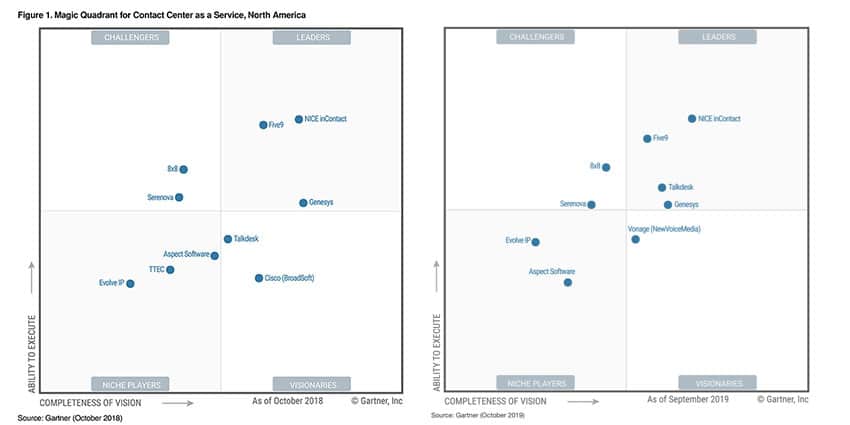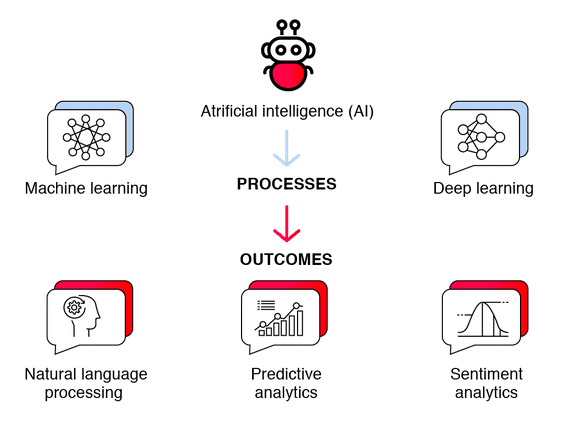
Rethinking the Customer Experience Your Brand Provides
Consumers have always had power over businesses. Without the patronage of buyers, sellers can’t successfully build reliable revenue streams. But since the start of COVID-19, customers have gained even more of an upper hand. Accordingly, companies need to put shoppers’ needs first.
Why are consumers more powerful than ever? Blame it on a quantum shift in what matters most to them. Data from McKinsey & Company shows buyers are exhibiting extreme caution when it comes to spending discretionary incomes. Plus, they’ve become surprisingly brand agnostic. No longer are they tied to a certain logo, image, or slogan. Instead, consumers are operating as free agents untethered by past behaviors and habits.
As an entrepreneur, CEO, or executive, you should look at this new wave of customer as both an opportunity and a challenge. The challenge, of course, is winning repeat and big orders when people are spending less in most categories. The opportunity, however, is a huge chance to pull ahead of the pack since everything’s in flux.
How can your brand stand out? Individuals wowed by exceptional customer experience won’t just refer friends and family. They’ll also come back for more concierge treatment again and again. And that will bode well for your bottom line.
Quick Takeaways:
- Reinvent the way your organization focuses on the overall customer experience (CX).
- Cloud-based Contact Center as a Service is the new in-thing in customer data centralization.
- Keep your updating your personas, target audiences and customer segments, and tweak your martech stack and processes accordingly.
Interested in making positive waves with browsers and buyers? Below are five methods to boost your CX. Each one can offer a significant ROI if you implement it thoughtfully after doing a little homework.
1. Centralize All Your Customer Related Data
Haven’t already centralized your client data in one location? Take time to investigate cloud-based platforms that serve as contact center as a service (CCaaS) solutions. When every contact touchpoint is available in one easy-to-navigate location, your CX team can wow shoppers. High-powered CCaaS choices can sometimes allow you to give consumers the ability to view and access their historic information, too. This engages them and limits their need to rely on your CX personnel for tasks they can do themselves.

What should you look for in any CCaaS package? Find one that works with your current customer relationship management (CRM) program, if applicable. If you don’t already use a CRM, invest in one when you roll over your CX to a centralized CCaaS. Remember: Everyone will have a learning curve to get to know the system. Nevertheless, when they get comfortable, they can power ahead like CX rockstars.
2. Empower Employees to Make Bold Decisions
Do people rave about your CX digitally and offline? Do you continuously get unparalleled reviews? Being able to impress clients doesn’t happen by accident. The process begins with empowered employees who know they can make bold decisions. The Ritz-Carlton is well-known for having over-the-top CX, all because the company engages its workers to do great things.
Your team members may want to go the extra distance, but may feel worried they’ll get in trouble. Lay out parameters, such as budget guidelines, to help them figure out how far they can go for customers. The more leeway you give them, the more they might surprise you. Start empowering all departments, not just the CX, to serve up winning experiences. Then, enjoy the results such as stronger online reviews and raves on social.
3. Use AI for Chatbots
People don’t like to wait to get a problem solved. Rather than forcing your customers with concerns or questions to wait, consider how artificial intelligence (AI) can help. As an example, AI-enhanced chatbots may be able to answer some basic inquiries. They can also be used to screen clients and direct them to the most helpful people in your company.

As AI technology gets smarter through machine learning, you may even be able to leverage AI to build marketing content. Let’s say your AI chatbot keeps getting variations on the same question. You can use that knowledge to construct a robust FAQs page or blog post that delivers pertinent responses. Then, the next time someone has a similar question, the person could find a solution without AI or human intervention.
4. Reevaluate Your Personas and Target Profiles
You’re aware that consumers aren’t reacting to companies or products like they did pre-coronavirus. But have you dusted off your target personas? You might want to take a second look at the audiences you’re trying to bring into your fold, because their needs have shifted—often radically.
How will updating your target persona profiles have an effect on CX? Basically, your CX team will be better positioned to serve buyers. They’ll be helpful and talking about what matters most to consumers, not what used to matter before the pandemic hit. Plus, CX professionals will have a greater understanding of the general customer journey that’s happening right now. Understanding the way a shopper goes from investigation to purchase is vital. The better you can predict the funnels they’ll need, the easier it will be to ward off objections. And that should translate to higher conversions.
5. Stay Ahead of the Competition with Originality
Your competition is studying you. Do likewise and study them as well. Figure out what their CX differentiators are. Do they have AI-enhanced bots bridging the gap between live representatives and shoppers? Are they constantly going above and beyond everyone else in the industry to be truly client-centric?
While you might be tempted to emulate what’s working for them, take a step back. Look at everything that seems to be working in their favor. Next, brainstorm things that they’re not doing. Are they sending handwritten thank-you notes? Exceeding customers’ expectations in terms of flash discounts? Figure out underserved niches that you can exploit, and then make those niches your CX calling card. Your CX doesn’t have to be earth-shattering to move mountains. It just has to be different in a way that consumers will appreciate.
If you read this blog regularly, you know I write mainly about 2 things. The first is that we marketers need to stop talking about ourselves and focus on our customers.
The second is that marketing can be more effective at creating value for our own business when we seek to meet the needs of our customers.
Well, almost as a rule, I try to follow my own advice and don’t use this site as a platform to promote what we are doing at SAP. But I think we have a great example launching today on how to use customers to tell our story. And how to focus on meeting their needs.
For example, SAP ran a great campaign called “Run Like Never Before” to put their principles of customer focus and customer storytelling to work. It encouraged people to:
Run without warehouses. Run with a department of one. Run with less hardware. Run anywhere, anytime.
What’s your vision for how your company can run like never before?
With the launch of our new Run Like Never Before advertising and marketing campaign, SAP invited people to imagine what is possible for their businesses today. The campaign was designed to show how companies are transforming with powerful business innovations – not only to run better, but to run like never before.
The “Run Like Never Before” campaign also aimed at telling the story of innovation – and how SAP’s strength across the categories of mobile, cloud, analytics, and in-memory computing is bringing the future into focus – today. Rather than using a traditional landing page with product information, the Run Like Never Before campaign linked back to the Business Innovation from SAP site to let people further explore how these innovations can enable their vision for their business.
Unlike many B2B campaigns, “Run Like Never Before” aims to connect to audiences across the world on a human level, speaking not to businesses, but to the people behind those businesses. Our campaign is designed to create an emotional impact with imagery, music, and film techniques more typically associated with consumer advertising.
Filmed in five countries and across three continents, the campaign seeks to reflect what global business means today and saying: “whether you’re a small local business or a global corporation, SAP is ready to partner with you to help achieve amazing things for your company.”
I was personally involved in the campaign as editor of the landing experience and am proud of it to this day.
The Benefits of a Customer-Focused Approach
Recent developments in technology are empowering consumers like never before. This digital revolution is expanding consumer choice and giving them access to information anytime, anywhere. Customers can now make educated choices between competing brands and products, as information is literally at the tips of their fingers.
As a result, they have higher expectations of brands. It’s more difficult than ever to convince customers of the value your product or service brings while competing with more established brands and companies. This is prompting businesses and marketers to bring their A-game when it comes to customer experience (CX). But why is CX so important?
It’s more expensive to find new customers than to retain existing ones
Most marketers invest a huge amount of time and resources in generating new leads and attracting new customers. Studies show that there is more value in focusing resources on retaining existing customers. After all, it costs five times as much to attract a new customer, than to keep an existing one.
A CapGemini study revealed that customers with strong brand attachments deliver 23% more profit and revenue than the average customer. By providing excellent customer experiences, businesses can gain the trust and loyalty of each customer.
Another report by BIA / Kelsey and Manta found that returning customers spend approximately 67% more than a new customer. Customer retention is improved with a customer-first approach that delivers great customer experience.
There are gaps in every customer journey
Data analytics tools are now available to aid marketers in their customer experience research. By looking at the metrics and data behind every customer touchpoint, you can determine gaps and bottlenecks in the customer journey.
Customers interact with companies through multiple touchpoints; by phone, via email, websites, social media channels, or in-store. You need to unify your channels to ensure consistency in customer service and communication.
According to Accenture, 89% of customers become frustrated because they need to repeat their issues every time they speak to a company representative. To drive the point home, another study revealed that 87% of consumers believe that companies need to work harder to provide a more consistent customer experience.
Optimized customer experience improves customer satisfaction
A 2014 survey by McKinsey & Company revealed that effective customer journeys increase a customer’s overall satisfaction by 20%. By optimizing your customer experience at every touchpoint, you can ensure a more seamless customer journey. This can potentially increase your revenue by up to 15% and lower your customer service costs by 20%.
However, it’s not enough to just look at individual touchpoints. You need to understand your sales funnel and focus on the entirety of the customer journey to improve their customer experience. When you focus on the customer journey as a whole, it becomes easier to see the “big picture” and deliver unified and consistent customer service.
When the customer experience is consistently positive, you can increase brand trust and loyalty while building strong business relationships.
Delighted customers are the best brand promoters
Satisfied customers are the best sources of referrals and brand advocacy. They’ve used your products and have experienced how you do business, so if they’re still buying from you, you’ll know it’s because they’re satisfied. There have already been countless studies that show how consumers trust the referrals of friends or trusted associates.
Nowadays, it’s very convenient for customers to hop on social media and post negative reviews about your company. Keep your customers happy, and they’ll provide all the social proof you need to build credibility for your brand.
It’s no longer about you (or the competition). It’s about your customer.
CX takes higher priority than price and product as the key brand differentiator in many industries. The focus of commercial transactions have moved from brand to consumer, so a shift in priorities is likely to occur.
Whatever industry or niche your business belongs to, you will always have competitors who either have lower prices than yours or more features to boast. Despite this, many brands are still able to differentiate themselves from tough competition based on perceived value. This perceived value is often derived from a great customer experience.
In the past, entrepreneurs and business owners believed that the key to a successful brand is in providing the most competitive price with the best features, but that no longer holds true today.
Creating a Delightful Customer Experience (Q&A with Matt Ruedlinger)
In an era where similar businesses are a Google search away, how can you differentiate your product, your brand, your customer service, and your CX? I asked Matt Ruedlinger, President of Triple R Marketing agency, to really break down the process of creating experiences that make people love (and purchase from) you.
Matt has studied and cultivated remarkable customer experiences. He has worked alongside world-renowned author and sales expert Jeffrey Gitomer, and has helped businesses promote their products at high-profile events such as the Sport Emmy Awards. With over 20 years’ experience in Marketing and Sales, he has seen the rise in customer expectations since starting his business. Here is what he had to say:
Q: In your view, what does it mean to truly be a “customer-centric” company?
The first thought that comes to mind is consistency. There is nothing worse than having a great experience with a company to find out it was a fluke because the next time you did business with them you were disappointed. A business that is customer-centric understand the touch points they have with their clients and makes sure that the experience happens every time. This means everyone (includes CEO, delivery people, receptionist) understands the strategy.
Q: How has your view of customer experience affected the way you run Triple R Marketing? I heard you bought a caramel shop to keep a personalized approach to doing business….
The 3 R’s in Triple R Marketing stand for Rapid, Reliable, Results, and that has been our core process since 2005. We use those 3 actions with each interaction with our customers and do it on a constant basis. If you would have told me a year ago that I would own a caramel business, I would have said you are nuts! For the past 3-4 years we have given our client caramels on their birthdays. We have hundreds of messages from our clients on how much they appreciate the simple gesture on their special day. Last September the owner of the company came to me and said she was going to shut down the doors. I panicked and purchased 25 pounds on the spot.
Not only are the taste of the caramels amazing, working with Joan at Joan’s Caramels was amazing. She catered the experience to make it easy for our company and she made us look like superstars! After spending month trying to find a replacement, with no luck, my wife and I decided to purchase the business to keep the tradition of birthday caramels alive. The caramels also work well with the promotional product side of our business.
Q: What separates a company that provides a good customer experience from a company that delivers a great customer experience?
That’s a great question. I think good customer experience happens, but great customer experience is planned. What I mean by planned is that a company has a mission to create experience and they empower their employees to make memorable moments. This falls back on your question about being customer-centric along with the ability to make a customer feel special.
Q: Where are companies missing the mark with customer experience?
According to Genesys, we spend 500 billion a year on marketing and advertising and we 9 billion on customer service. If a company says they are great, no one cares. If a customer says a company is great, people listen. Businesses need to invest in their customers and make them the cheerleaders for their company. I think you will start seeing a shift in those numbers and they will become more inline. Well..that is for the companies that understand the consumer is in control.
Q: Many people now argue that delighting customers isn’t as important as making their experience easy. What do you think?
I think you have to excel on both delighting the customer and making it easy to work with your business. If your customers are not delighted in doing business with you, and/or if they have to go through hoops to get what they need…why would they want to do business with you again? I like to ask clients, if you were to close your doors today, what would your customer do?
Q: Tell us about your least favorite customer experience
I think I speak for everyone when I say when we get these automated recording and we say “customer service”, that means we want to talk to a live person, not be rerouted to a voice recording of someone acting like they are pecking on a keyboard and asking me more questions. Maybe that was a little rant!
Q: Tell us about your favorite customer experience.
Once we stopped at a restaurant in Louisville KY called Marks Feed Store. When we sat down, the waiter asked if it was our first time. After saying yes, the waiter came over and shook my hand. I thought it was a little odd, but didn’t think much more about it. As we were eating, I think every waiter and waitress that walked past our table said “we heard it was your first time here..thanks for stopping in”. It was a really awesome feeling. If that wasn’t enough, after the meal the manager came out, asked if our meal was delicious, which it was, and he asked me which was my favorite BBQ sauce. After I told him, he brought me out a bottle of sauce to take home, plus a piece of their signature pie! I was amazing!
No, I don’t expect that every time I go back, but I have told the story or my experience hundreds of times and everyone ask for more details about Marks Feed Store every time I tell it. That experience probably cost under $5 and an understanding with manager, waiter, and waitress, that when someone comes in for the first time, we are going to create an experience they won’t forget.
Q: What’s the best piece of advice you can offer to companies looking to optimize customer experience?
We are no longer B2B or B2C, we are P2P (People 2 People). Jeffrey Gitomer said it best: People don’t like to be sold, but they love to buy. It that old saying our moms always taught us, treat others how you want to be treated. If you don’t like to wait for answers, don’t make your customers answer. If you like a friendly voice when you call a business, give your customers a friendly voice. If you don’t like getting charged extra on an emergency, don’t charge your customers extra. You get the point.
Over to You
Business goals are now centered on how customers can achieve success with your products, with the help of an optimized customer experience and journey. Technology is making it easier for businesses and marketers to offer the personalized brand experience that modern customers crave.
In almost every industry, brand loyalty’s up for grabs. You could end up with a larger portion of the pie, simply by focusing on CX.






